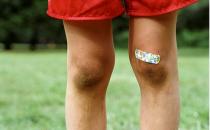Attention deficit hyperactivity disorder (ADHD) in children

ADHD is a disorder that can affect children’s learning, behaviour and development. Children with ADHD have short attention spans and may be easily distracted, overactive and restless.
About ADHD
Symptoms of ADHD
Complications of ADHD
Causes of ADHD
Diagnosis of ADHD
Treatment of ADHD
About ADHD
ADHD is also known as attention deficit disorder (ADD) or hyperkinetic disorder. These different names can be confusing but are all used to describe the problems of children who can’t concentrate and are overactive.
ADHD is more common in boys than in girls – it affects around one in 25 boys and one in 100 girls in the UK. Children are usually diagnosed between the ages of three and seven, but symptoms continue into adolescence and adulthood and sometimes may only be diagnosed in later life.
If you think your child may have ADHD, it’s important to talk to your GP and start treatment as soon as possible.
Symptoms of ADHD
There are a range of symptoms or behaviours that are associated with ADHD. Many of these behaviours are also seen in children who don’t have ADHD. These are only a problem if they are exaggerated compared to children of the same age and they affect your child’s social and school life.
The following table lists a number of common ADHD symptoms.
| Inattention symptoms | Hyperactive symptoms | Impulsive symptoms |
| Making careless mistakes in schoolwork | Fidgeting | Interrupting others |
| Not listening to or following instructions properly | Running or climbing when and where they shouldn’t | Unable to wait for their turn or in queues |
| Not finishing things – being distracted easily | Unable to stay sitting down or to play quietly | Answering questions before they have been fully asked |
| Losing and forgetting things | Talking constantly |
Children with ADHD may have mostly hyperactive or impulsive symptoms, mostly inattention symptoms or a combination of these.
Other symptoms common in children with ADHD include:
- aggressiveness and poor discipline – disruptive behaviour
- vocal or motor tics
- fearlessness and reckless behaviour
- irritability
- difficulty interacting with peers
- sleep problems
ADHD won’t make your child less intelligent but it may interfere with his or her learning.
If your child has ADHD, you may first notice it or it may get worse when he or she starts school. Your child may be slower to learn things than other children because he or she can’t pay attention and concentrate. If your child is hyperactive and aggressive he or she may have difficulty getting on with other children. If your child is dreamy and inattentive but not disruptive, you and your child’s teacher may not notice his or her condition.
Complications of ADHD
If your child has ADHD, he or she may find it difficult to communicate and interact with other children and adults. Your child may also have problems with speech development.
As your child gets older, there is an increased risk that he or she may become involved in antisocial conduct, such as rowdy behaviour, and may be unaware of how these actions affect others.
Causes of ADHD
The exact cause of ADHD isn’t known, but there are probably a number of factors involved.
Compared to people of the same age, people with ADHD may show differences in the parts of their brains that deal with controlling impulses and focusing attention.
Your child may be more likely to have ADHD if he or she:
- has a family history of ADHD
- had a low birth weight
- was exposed to cigarettes, alcohol or drugs (such as cocaine or heroin) in the womb
Your child’s behavioural and emotional symptoms may be worse if he or she also has other problems, such as an anxiety disorder. A stressful home environment, for example because of a divorce or separation, may also be linked with ADHD, but it is hard to know whether this might be a cause or a result of the condition.
Diagnosis of ADHD
If you think that your child may have ADHD, visit your GP. He or she will ask you about your child’s symptoms and examine your child. Your GP may also ask you about your child’s medical history.
If your GP thinks that your child may have ADHD, he or she will refer your child to one of the following specialists:
- a child psychiatrist (a doctor who specialises in children’s mental health)
- a specialist in your local Child and Adolescent Mental Health Services
- a specialist paediatrician (a doctor who specialises in children’s illnesses)
There are no specific tests for ADHD. The specialist will observe your child and look at reports of his or her behaviour. You and other people who spend time with your child, such as carers or teachers, may be asked to fill in a questionnaire about your child’s behaviour.
ADHD is usually diagnosed if you child has symptoms that affect both school and social life (present in more than one setting).
Treatment of ADHD
The most effective way to treat ADHD is to use a combination of different treatments.
The exact treatments used will depend on what your child needs and how he or she responds. Your child may need to try several treatments before finding one that works.
Self-help
-
Diet A healthy diet is always important. In some children, ADHD symptoms can be improved by cutting down on certain ingredients such as food additives. You should speak to your child’s doctor or a dietitian before making any changes to your child’s diet.
-
Managing behaviour at home You can help your child by providing a structured environment with clear rules of acceptable behaviour. Your child’s specialist can help you learn how to manage his or her specific behaviours. You could also attend classes and support groups where parents with similar experience can share their knowledge and experience.
-
School Talk to your child’s teacher about his or her condition. A structured and orderly classroom without too many distractions and small group or individual teaching may help your child to focus.
If your child is diagnosed with ADHD, his or her school may offer extra help with reading, spelling, maths, organisational skills, speech therapy, physical education therapy and counselling. An educational psychologist will usually assess your child’s needs and check on his or her progress.
Medicines
Your child’s specialist may offer medicines to manage the symptoms of ADHD. Your child will often need to continue treatment into adolescence and may need to continue as an adult. The specialist will identify a suitable medicine and dosage, and after this your child’s GP may take over his or her care. Medicines aren’t usually recommended for children under the age of six.
The type of medicine prescribed for your child will depend on:
- his or her symptoms
- whether he or she has any other medical conditions
- how he or she responds to the medicine
- whether he or she gets any side-effects
Medicines that are often prescribed for children with ADHD include methylphenidate (eg Ritalin and Concerta XL), atomexetine and dexamfetamine. Like most medicines it is important that you’re aware of possible side-effects, including insomnia, headaches, irritability, loss of appetite and weight loss. Always ask your child’s doctor for advice and read the patient information leaflet that comes with your child’s medicine.
It’s not clearly understood how these medicines work. However, it’s thought that they work by changing the levels of certain chemicals in the brain. They can help to reduce hyperactivity and impulsiveness and increase attention span, helping your child to concentrate at school.
Talking therapy
Talking therapies such as psychological and behavioural therapy can also help. The therapy is designed to help your child learn to focus their attention and reduce impulsive behaviour. Therapy may be offered to your child or your whole family.
Living with ADHD
Caring for a child with ADHD can be difficult and the effects on family life can be dramatic. National support groups are available for the families of children with ADHD, and your GP may be able to put you in touch with a local group. Through one of these, you can meet other families in the same situation and get support and advice on behaviour management for your child.
This section contains answers to common questions about this topic. Questions have been suggested by health professionals, website feedback and requests via email.
I’m an adult: could I have attention deficit hyperactivity disorder (ADHD) even though I wasn’t diagnosed with it as a child?
Which foods might be particularly good or bad for a child with attention deficit hyperactivity disorder (ADHD)?
I’m pregnant and have an older child who has attention deficit hyperactivity disorder (ADHD). Is my new baby likely to have ADHD too?
I’m an adult: could I have attention deficit hyperactivity disorder (ADHD) even though I wasn’t diagnosed with it as a child?
Answer
Yes. It’s estimated that ADHD may affect around one in 25 adults. ADHD is often diagnosed in childhood and continued through adolescence into adulthood. However, the number of adults being newly diagnosed with ADHD is increasing.
Explanation
ADHD symptoms that are more likely to persist into adulthood include those related to inattention, such as lack of concentration and forgetfulness, while hyperactivity symptoms are more likely to improve with age. In general, ADHD symptoms in adulthood are milder than those in childhood. However, the symptoms may still impact adults because of the increased demands of adulthood – for example, employment and family.
Adults with ADHD often also have other mental health conditions such as anxiety, depression, alcohol and/or drug dependence. These conditions may be as a result of ADHD – for example, stress related to struggling to cope with the effects of ADHD can lead to depression, or make someone more likely to depend on alcohol.
You may want to talk to your GP to discuss the likelihood of ADHD if you remember having problems as a child or teenager and have the following symptoms.
You have difficulty:
- organising yourself and remembering appointments
- finishing off big projects at work or at home
- following instructions
- doing repetitive tasks
- concentrating on what other people are saying to you
- waiting your turn in queues
You may also:
- Stay away from starting long or potentially tedious tasks
- fidget a lot or have to get up and move around frequently
- feel restless and always ‘on the go’
- make careless and frequent mistakes in your work
- frequently lose things
- be easily distracted by activity or noise around you
- find yourself talking too much or finishing other people’s sentences
Which foods might be particularly good or bad for a child with attention deficit hyperactivity disorder (ADHD)?
Answer
There is conflicting evidence about whether certain foods are good or bad for children with ADHD. However, you may want to talk to your child’s doctor or a dietitian about cutting out foods such as artificial colourings or preservatives if they make your child’s symptoms worse. You should make sure your child eats a healthy, varied diet, including foods containing minerals, vitamins and omega-3 fatty acids.
Explanation
Eating a varied and balanced diet promotes healthy development in all children.
In some children certain foods seem to trigger ADHD symptoms. The most common triggers are artificial food colourings and preservatives such as sodium benzoate. It’s worth trying to keep the following out of your child’s diet:
- sunset yellow (E110)
- quinoline yellow (E104)
- carmoisine (E122)
- allura red (E129)
- tartrazine (E102)
- ponceau 4R (E124)
They are found in soft drinks, sweets and cakes. Some children become hyperactive when they eat or drink anything containing caffeine, such as chocolate, tea or coffee.
If you notice a change in your child’s hyperactivity after having certain foods, or his or her symptoms get worse, you may want to start a diary to record what he or she is eating and drinking and their ADHD symptoms throughout the day. If the diary supports a link, your child’s GP can refer you to a dietician. The dietician can help you to remove specific foods from your child’s diet while making sure that he or she doesn’t miss out on any important nutrients.
Various supplements have been suggested as helpful for children with ADHD, including omega-3 fatty acids (from oily fish), iron and zinc. However, there isn’t enough evidence to say that all children with ADHD should take these supplements.
If your child has low iron levels, an iron supplement may help, but you should talk to your child’s GP about this first.
The most important thing you can do is to make sure your child has a good diet, including five portions of fruit and vegetables a day and two servings of fish of which one should be oily fish.
I’m pregnant and have an older child who has attention deficit hyperactivity disorder (ADHD). Is my new baby likely to have ADHD too?
Answer
A child born into a family where ADHD is present (for example, parents or older brothers or sisters have ADHD) may be up to five times more likely to have ADHD than a child born into a family with no history of ADHD. However, there are a number of other factors that are also known to play a role in ADHD.
Explanation
There is a strong genetic basis for ADHD, and researchers have found several genes which may play an important role in the development of the condition. However, genetic factors alone aren’t usually enough to cause ADHD – other factors are important too.
ADHD is more common in boys than in girls – boys are around three times more likely to have ADHD than girls, and are more likely to be referred for treatment because of the more aggressive nature of their symptoms.
If you’re pregnant, it’s recommended that you don’t smoke, drink alcohol or take illegal drugs (such as marijuana and cocaine) as these have been linked to the development of ADHD in the unborn child. The more cigarettes you smoke during pregnancy, the more ADHD symptoms your child is likely to have. Make sure you’re not exposed to passive smoking. There isn’t thought to be an increased risk of ADHD in your unborn child if you consume caffeine (for example, in tea, coffee or chocolate) during pregnancy.
Babies who weigh less than 2.5kg (5lb 8 oz) when they are born are thought to be at a higher risk of ADHD. Eat a healthy, balanced diet and attend all your antenatal appointments to ensure your pregnancy is as healthy as possible.
There may also be a link between stress during pregnancy and ADHD. If you’re stressed and worried about things during your pregnancy, talk to your midwife or your GP.
Talk to your child’s specialist and your midwife about what else you can do to reduce the risk of ADHD.
Further information
Royal College of Psychiatrists
020 7235 2351
www.rcpsych.ac.uk
National Attention Deficit Disorder Information and Support Service, ADDISS
020 8952 2800
www.addiss.co.uk
Sources
• Simon C, Everitt H, van Dorp F. Oxford handbook of general practice. 3rd ed. Oxford: Oxford University Press, 2010: 915
• Diagnosis and management of ADHD in children, young people and adults. National Collaborating Centre for Mental Health, 2009, edición No. 72. www.nice.org.uk
• Attention deficit hyperactivity disorder. Clinical Knowledge Summaries. www.cks.nhs.uk, accessed 29 November 2010
• Attention deficit hyperactivity disorder. eMedicine. www.emedicine.medscape.com, accessed 29 November 2010.
• Joint Formulary Committee. British National Formulary. 61st ed. London: British Medical Association and Royal Pharmaceutical Society of Great Britain; 2011
• Nutt DJ, Fone K, Asherson P, et al. Evidence-based guidelines for management of attention-deficit/hyperactivity disorder in adolescents in transition to adult services and in adults: recommendations from the British Association for Psychopharmacology. J Psychopharm 2007; 21:10–41.
• Mental health and growing up. The Royal College of Psychiatrists. www.rcpsych.ac.uk, accessed 30 November 2010
• Management of attention deficit and hyperkinetic disorders in children and young people. A national clinical guideline. Scottish Intercollegiate Guidelines Network. 2009. www.sign.ac.uk
• Ells LJ, Hillier FC, Shucksmith J et al. A systematic review of the effect of dietary exposure that could be achieved through normal dietary intake on learning and performance of school-aged children of relevance to UK schools. 2006. www.food.gov.uk
• Diet, behaviour and learning in children. British Dietetics Association. www.bda.uk.com, accessed 2 December 2010
• Intolerance to additives. Eat well, be well. Food Standards Agency. www.eatwell.gov.uk, accessed 2 de December 2010
• Your growing child. Eat well, be well. Food Standards Agency. www.eatwell.gov.uk, accessed 2 de December 2010
• The pregnancy book. Department of Health. www.dh.gov.uk, accessed 2 de December 2010
• Banerjee TD, Middleton F, Faraone SV. Environmental risk factors for attention-deficit hyperactivity disorder. Acta Pædiatrica 2007; 96:1269–74
















